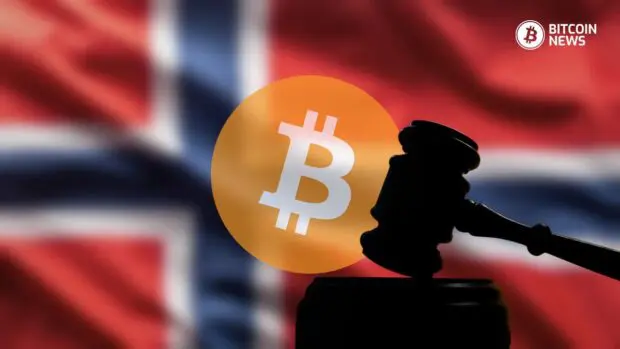Norway has recently enacted new legislation pertaining to data centers, a move that could lead to increased scrutiny for Bitcoin miners operating within the country.
Under the new regulations, explained by Terje Aasland, Norway’s minister of energy, all data centers in Norway will be required to register officially, providing detailed information about their ownership, leadership, and the nature of digital services they offer. This makes Norway the first European nation to establish such a comprehensive framework.
Norway Enacts New Legislation
Aasland stated that the objective of this legislation is to provide politicians with a clearer understanding of data center operations in their respective municipalities.
This, in turn, will enable better decision-making regarding the acceptance or rejection of such operations. Aasland emphasized that the aim is to regulate the industry in a manner that allows for the exclusion of undesirable projects.
The implications of this decision extend to Bitcoin miners, especially in light of the impending Bitcoin halving, which will halve block issuance rewards and potentially impact miners’ profitability.
Terje Aasland Highlights Environmental Concerns
Aasland highlighted concerns about the environmental impact of Bitcoin mining, citing significant greenhouse gas emissions associated with the activity. He stated:
“[Bitcoin mining] is linked with large greenhouse gas emissions, and is an example of a type of business we do not want in Norway.”
Related reading: Bitcoin’s Net-Positive Environmental Impact: List of Recent Studies
The government’s stance suggests a desire to steer clear of businesses seeking to use Norway’s abundant and inexpensive energy resources for Bitcoin mining purposes.
While Norway boasts some of the cheapest electricity in the country’s northern regions, where numerous Bitcoin mining firms operate, Aasland reiterated that such firms are not welcome. He expressed a preference for data centers that serve “socially beneficial” purposes, such as storage servers, which are deemed integral to Norway’s societal structure.
Greater Transparency
Despite the government’s lack of knowledge about the exact number of Bitcoin mining firms operating within the country, the new legislation aims to provide greater transparency and data to inform Norway’s broader digitalization strategy.
Karianne Tung, the minister of digitalization and public governance, emphasized that this information will facilitate the advancement of Norway’s digital agenda.
The timing of this regulatory development coincides with increased pressure on Bitcoin miners due to the impending halving event.
Liquidation Post Halving
Markus Thielen, head of research at 10x Research, highlights this pressure on bitcoin miners post-halving, estimating that the miners could liquidate up to $5 billion worth of BTC in the months following the halving. It underscores the challenges faced by the industry amidst evolving regulatory landscapes and market conditions.
“Based on our calculations, miners will potentially liquidate $5bn worth of BTC after the halving. The overhang from this selling could last four to six months, explaining why Bitcoin might go sideways for the next few months—as it has done following past halvings,” said Thielen.
Despite those numbers, not everything is gloomy for Bitcoin miners. In early April, BitcoinNews reported that the miners recorded a new all-time high for their monthly revenues, collecting a staggering $2 billion with a total of $1.93 billion being generated from the block subsidy. Further, an additional $85.81 million derived from transaction fees.










